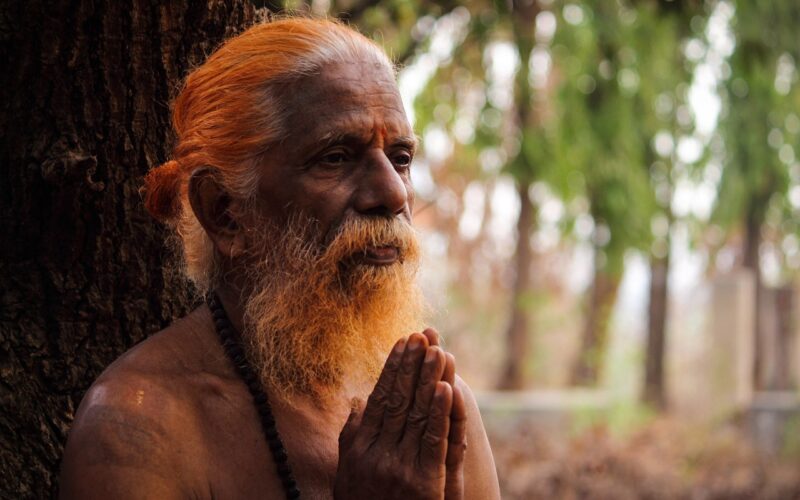Is there more to life than just the everyday mundane? Are we really connected in ways that go beyond what our physical eyes can see? For some, spirituality is a way of life.
It's about understanding how something greater than us exists and having faith that something even bigger is out there. But could this be true for everyone, or is it simply an individual idea accepted by some people but completely rejected by others?
Let's look deeper into the essence of spirituality and answer questions such as: What does it mean to be spiritual? Why do some people choose to live a spiritual existence and does it positively impact their lives?
What is spiritualism and why does it exist?
Spiritualism refers to a belief system that involves the existence of a spiritual realm, and the ability to communicate with entities in that realm. It has been around for centuries and typically involves mediums, who are believed to be able to connect with the spirits of the dead.
Spiritualism rose to prominence in the 19th century and gained a following in Europe and North America. Its popularity was fuelled by the rise of the middle class, who were looking for ways to connect with the spiritual world. The movement appealed to individuals who were disillusioned with traditional religious practices and sought a more direct experience with the divine.
Today, spiritualism continues to attract followers who seek to connect with the spiritual realm and gain a deeper understanding of themselves and the world around them.
How can you benefit from spiritual practices?
For many people, spiritual practices offer a way to connect with something greater than themselves and find meaning in their daily lives. These practices can take many forms, from meditation and prayer to yoga and nature walks.
By engaging in these activities, people can benefit by reducing stress and anxiety, improving their mental and physical health, and cultivating a sense of purpose and inner peace. Additionally, spiritual practices can help individuals develop stronger relationships with others and a greater sense of empathy and compassion.
Whether seeking personal growth or a deeper connection with the world around them, embracing spiritualism can enrich both the individual and the wider community.
Different types of spiritualism
Spiritualism is a broad term that encompasses a multitude of practices and ways to connect with the spiritual realm. From meditation and prayer to energy healing techniques, the possibilities are endless. Some choose to follow specific religious traditions, while others take a more individualistic approach.
For example, one may explore shamanism and use herbs, crystals, or other natural elements in their practice. Another may restrict their diet and participate in regular breathwork exercises to align with their spiritual beliefs.
Whether you choose to go solo or seek guidance from a spiritual leader, the crucial factor is finding a practice that resonates with you. It's important to remember that spiritualism is not a one-size-fits-all approach and to try various techniques to find what works best for you.
How can you integrate spiritual practices into your daily life?
Spirituality is an integral part of many people's lives and can bring a sense of purpose and inner peace. In order to integrate spiritual practices into your daily routine, it is important to identify what works best for you. This can include setting aside time each day for prayer, meditation, or reflection.
Finding a spiritual community or group can also be a great way to connect with like-minded individuals and deepen your practice. It can also be helpful to incorporate mindfulness into your daily activities, such as focusing on your breath while washing dishes or taking a mindful walk in nature.
Remember, spirituality is a personal journey, so it is important to find what feels most authentic and fulfilling for you.
Being a spiritual person
Being a spiritual person can have a range of benefits for one's mental, physical, and emotional well-being. Spirituality can offer a sense of purpose and meaning in life, which can lead to greater internal peace and contentment.
Engaging in spiritual practices such as meditation or prayer have been shown to reduce stress and anxiety, and improve overall mood. Additionally, spiritual beliefs and practices can provide a sense of community and belonging, which can help combat feelings of loneliness and isolation. There is even evidence to suggest that embracing spirituality can have physical benefits, such as improved immune function and lower blood pressure.
These benefits highlight the importance of considering spirituality as a vital component of overall health and well-being.
Myths about spirituality
Spirituality is an important part of many people's lives, yet there are often common myths that circulate around it. One such myth is that spirituality is exclusively tied to religion.
However, spirituality can still exist even without religious beliefs. Another common myth is the idea that you have to be a certain type of person or have a specific personality to be "spiritual". This is untrue. Spirituality can be embraced by anyone, regardless of background or personality. Finally, many believe that spirituality is all about "good vibes" and positive thinking.
While positive attitudes do have a place in spirituality, it is not the only aspect of it. By dispelling these myths and exploring what is truly involved in spirituality, we can fully appreciate and embrace this important part of our lives.

























